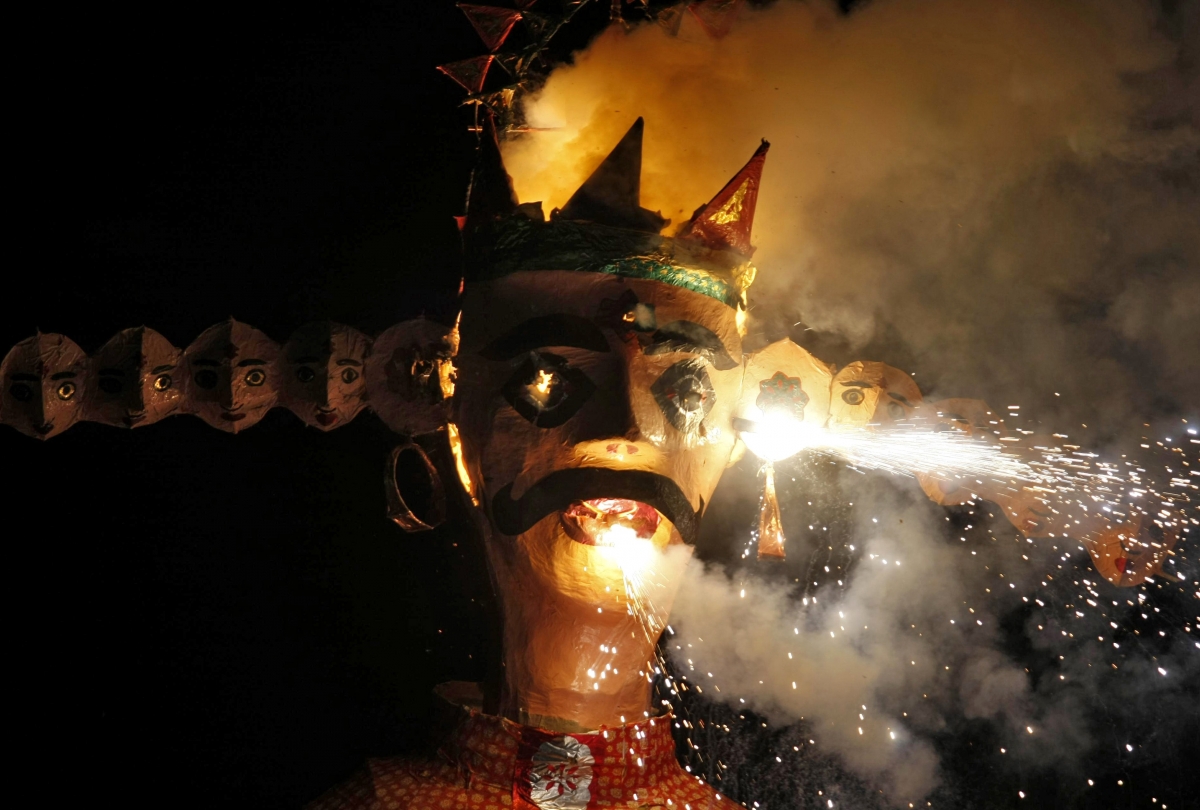Dussehra is a Hindu festival, celebrated by million of citizens across the country, to mark the victory of good over evil.
Dussehra is derived from Sanskrit word "Dasha-hara", which means the removal of 10 bad qualities.
The festival is also known as Vijaya Dashami, Dasara or Dashain in different places. This year, Dussehra is celebrated on 3 October.
It is believed that on this day, Lord Rama killed the king of demons Ravana and rescued his abducted wife Sita.
Large outdoor fairs and melas are held with huge display of effigies of Ravana (the mythical king of ancient Sri Lanka) on the day. The effigies are later burnt on bonfires, while the crowd burst into cheers.
Dussehra also marks the end of the auspicious nine-day festival called Navratri. On the day of Dussehra, the deities installed on the first day of the Navratri are immersed in water, and devotees, who engage on fast during the nine days, visit each other and exchange sweets.
Every year, plays are performed at different parts of the country, which re-enacts Hindu deity Rama's battle to kill the 10-headed demon king Ravana.
The Ramlila play is one of the oldest and popular acts in India, and is performed at the Red Fort ground (Lal Qila Maidan), New Delhi by the Lav Kush Ramlila Committee.
Hundreds of people flock to watch the play, which is based on the epic Ramayana. Artists describe the life of Rama, and how he rescued his wife by killing Ravana, after 10 days of tedious battle.
In the eastern parts of India, including the state of West Bengal, Hindus also celebrate the triumph of good over evil, by celebrating the victory of goddess Durga over the demon Mahishasura.























